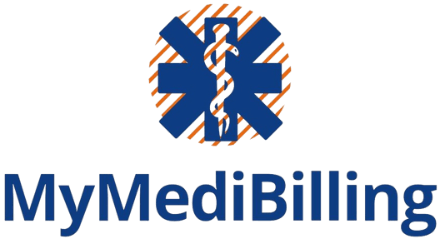Introduction
In-house billing and managing it in-house is a critical one for healthcare organizations. Each approach has its own set of advantages and challenges that can significantly impact the financial health of a practice or hospital. Outsourcing billing typically involves hiring a third-party company to handle all aspects of the billing process, from claims submission to payment collection.
This can free up internal resources and allow healthcare providers to focus more on patient care. Conversely, in-house billing allows for greater control over the billing process, enabling organizations to tailor their practices to meet specific needs and maintain direct oversight of their financial operations. Healthcare providers must weigh these options carefully, considering factors such as cost, efficiency, compliance, and patient satisfaction.
The choice between outsourcing and in-house billing is not merely a financial decision; it also reflects the organization’s values and priorities. For instance, a small practice may find that outsourcing is more cost-effective and less burdensome, while a larger institution might prefer in-house billing to maintain control over sensitive patient data and ensure compliance with regulations.
Key Takeaways
- Outsourcing billing can save healthcare providers time and money, while in-house billing offers more control and customization.
- Cost comparison shows that outsourcing billing can be more cost-effective for smaller healthcare practices, while larger practices may benefit from in-house billing.
- Efficiency and accuracy are crucial in billing processes, and both outsourcing and in-house billing have their strengths and weaknesses in this area.
- Compliance and security considerations are important when outsourcing healthcare billing, as providers must ensure that patient data is protected.
- Staffing and training are key factors in managing in-house billing teams, while outsourcing offers flexibility and scalability for healthcare providers.
Compliance and Security: Considerations for Healthcare Billing Outsourcing
Compliance with healthcare regulations is a critical concern for any organization involved in patient billing. The Health Insurance Portability and Accountability Act (HIPAA) sets stringent standards for protecting patient information, and any breach can have severe legal and financial repercussions. When outsourcing billing functions, healthcare providers must ensure that third-party vendors adhere to these regulations.
This often involves conducting thorough due diligence on potential partners to verify their compliance history and security measures. In-house billing teams have the advantage of being directly managed by the healthcare organization, which can facilitate better oversight of compliance practices. Staff members are typically trained on relevant regulations and are more likely to be aware of the specific compliance challenges faced by their organization.
However, this does not eliminate the risk of human error or oversight. Therefore, whether opting for outsourcing or maintaining an in-house team, healthcare organizations must prioritize compliance and security as integral components of their billing strategy.
Flexibility and Scalability: Exploring Outsourcing Options for Healthcare Billing
| Outsourcing Options | Flexibility | Scalability |
|---|---|---|
| Offshore Outsourcing | High | High |
| Nearshore Outsourcing | Medium | High |
| Onshore Outsourcing | Low | Low |
One of the significant advantages of outsourcing healthcare billing is the inherent flexibility it offers organizations. As patient volumes fluctuate due to seasonal trends or unforeseen circumstances such as public health emergencies, outsourced billing services can quickly adjust their resources to meet changing demands. This scalability allows healthcare providers to maintain efficient operations without the burden of hiring or laying off staff during periods of fluctuating demand.
In contrast, in-house billing teams may struggle with scalability due to fixed staffing levels and resource constraints. While they can implement strategies to improve efficiency during peak times, such as cross-training employees or utilizing temporary staff, these solutions may not be as agile as outsourcing options. Therefore, healthcare organizations must assess their growth projections and operational needs when deciding between outsourcing and maintaining an in-house billing team.
Customer Service and Patient Satisfaction: Impact of Billing Processes on Healthcare Experience

The billing process plays a crucial role in shaping the overall patient experience within healthcare settings. Clear communication regarding costs, insurance coverage, and payment options is essential for fostering trust between patients and providers. Outsourced billing companies often specialize in customer service, employing trained representatives who can address patient inquiries promptly and effectively.
This focus on customer service can enhance patient satisfaction by providing timely information about their accounts. Conversely, in-house billing teams have the advantage of being more familiar with the specific policies and practices of their organization. This familiarity can lead to more personalized interactions with patients, as staff members are better equipped to answer questions related to specific services rendered or payment plans available.
Risk management is essential when evaluating the pros and cons of outsourcing versus in-house billing in healthcare settings. Outsourcing can mitigate certain risks associated with staffing shortages or operational inefficiencies; however, it introduces new data security risks and compliance oversight risks. Healthcare organizations must conduct thorough assessments of potential vendors to ensure they have robust security measures to protect sensitive patient information.
Staffing and Training: Managing In-House Billing Teams in Healthcare
Managing an in-house billing team requires careful consideration of staffing needs and ongoing training initiatives. Healthcare organizations must recruit individuals with specialized knowledge in medical coding, insurance processes, and billing regulations. This expertise is essential for ensuring accurate claim submissions and minimizing denials.
Additionally, as regulations evolve and new technologies emerge, continuous training becomes vital to keep staff updated on best practices and compliance requirements. The challenge lies not only in hiring qualified personnel but also in retaining them in a competitive job market. High turnover rates can disrupt billing operations and lead to increased costs associated with recruitment and training new employees.
Organizations that invest in employee development programs and create a positive work environment are more likely to foster loyalty among their staff. By prioritizing training and employee satisfaction, healthcare providers can build a skilled in-house billing team capable of navigating the complexities of healthcare finance effectively.
Conclusion
In-house billing teams offer greater control over operations but come with risks, including potential knowledge gaps due to staff turnover or inadequate training programs. Organizations must weigh these risks against their operational goals and resources available for managing billing functions effectively. By carefully considering both options’ advantages and disadvantages, healthcare providers can make informed decisions that align with their strategic objectives while minimizing potential risks associated with billing processes.

